Việt Nam Slashes Use of Death Penalty: Eight Crimes Removed, Including Corruption and Drug Offenses
Key Events * Việt Nam Abolishes Death Penalty for Corruption Amid Wave of High-Profile Trials * Chinese Survey Ship Operates Near Việt

On 22 January 2019, Vietnam underwent for the third time a comprehensive peer review of its human rights record at the Human Rights Council (a process known as Universal Periodic Review or UPR), amidst what many rights groups and observers have called the worst wave of crackdown on dissent, activism and civil society in years.
121 governments took to the floor and made close to 300 recommendations on a wide range of human rights issues. Under the rules of the UPR, Vietnam can choose to “accept” or merely “note” the recommendations it receives and must do so in writing by the time the 41st session of the Human Rights Council begins in late June 2019.
Governments have the primary responsibility to implement those recommendations that they have accepted and report progress therein in the next cycle of review.
Many of the issues raised during the third review are the subject of recommendations that Vietnam had accepted to implement or noted in the two previous UPR cycles. Critics say that Vietnam not only failed to implement them but have taken actions to the contrary.
Prior to the latest review, numerous independent civil society organizations, both inside Vietnam and internationally, submitted parallel reports to the United Nations on the non-implementation of previously accepted recommendations and the overall deteriorating human rights situation in Vietnam.
Below are some highlights of recommendations clustered by several major recurring thematic issues (the number preceding each recommendation refers to the paragraph number in the draft outcome report of Vietnam’s third UPR, followed by the name of the recommending country in parentheses):
Civil Society and Human Rights DefendersRestrictive Laws and RegulationsDeath PenaltyDiscrimination, Inequalities and Vulnerable GroupsFundamental FreedomsJudicial System, Fair Trials and Due Process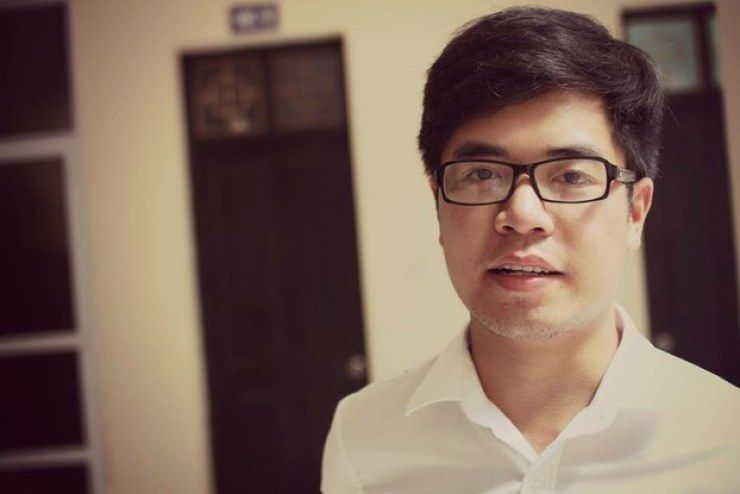
Civil Society and Human Rights Defenders
6.55 Take steps to protect human rights defenders, particularly by repealing or revising the provisions of the Penal Code that make reference to the concept of national security (France)
6.145 Immediately release prisoners who have been arbitrarily or unlawfully detained and allow them to exercise their human rights and fundamental freedoms in Vietnam, including Ho Duc Hoa, Tran Huynh Duy Thuc, Tran Thi Nga, Nguyen Bac Truyen, and the members of the Brotherhood for Democracy (United States of America)
6.175 Release human rights defenders sentenced to prison for exercising the right to freedom of expression (Iceland)
6.177 Take the necessary measures to ensure the freedom of expression of human rights defenders and journalists, in particular by investigating and punishing perpetrators of threats and reprisals against them (Argentina)
6.180 Protect human rights defenders and prosecute all persons guilty of violence or intimidation against them (Luxembourg)
6.186 Review regulations impeding the operation of Civil Society Organisations, to enable a more open space and ensure that national security provisions are not used to prevent peaceful debate and dissent (Ireland)
6.191 Release all human rights defenders as well as political and religious activists detained for the peaceful expression of their political opinions or religious belief (Poland)
6.198 Adopt measures in line with international standards to guarantee freedom of association, opinion and expression, including online, and to ensure that journalists, human rights defenders and NGOs can freely operate (Italy)
6.202 Guarantee Fully freedom of speech, the rights of peaceful assembly and association as well as the safety of journalists, and review cases of persons convicted for having freely expressed their opinion, including human rights defenders (Switzerland)
6.203 Improve protection of the rights to peaceful assembly and expression by reviewing existing legislation, and publishing and implementing clear, transparent guidelines on security personnel conduct in managing peaceful demonstrations (United Kingdom of Great Britain and Northern Ireland)
6.205 Ensure consistent implementation of the Law on Belief and Religion particularly at the local level, including with respect to registration of Protestant groups and other groups in Northwest Highlands provinces, and remove undue restrictions on access to religious materials and clergy for those imprisoned and cease any harassment of independent groups on account of their religion (United States of America)
6.211 Publicly recognize human rights defenders and provide an environment in which they can carry out their human rights work safely (Belgium)
6.214 Nurture a culture of free expression online and offline, release all imprisoned human rights defenders, including bloggers and political dissenters, and put an end to their harassment (Czechia)
6.215 Create an enabling environment for independent civil society and ensure that the prepared Law on Association facilitates the registration, work and funding of NGOs free from undue State interference and restrictions (Czechia)
6.216 Lay ground for political plurality and democracy and guarantee its citizens the full enjoyment of the rights to vote and to be elected and to take part in the conduct of public affairs (Czechia)
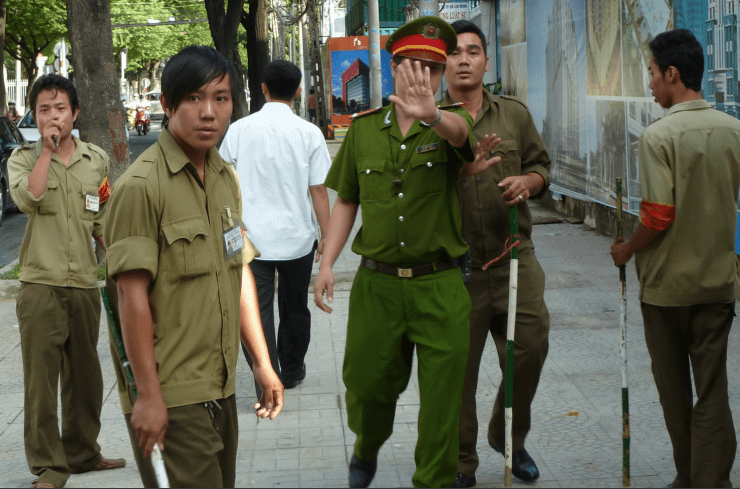
Restrictive Laws and Regulations
6.73 Adapt the Code of Penal Procedure to international standards and amend Articles 109 and 117 on “activities against the State” in the Penal Code, in line with human rights standards (Switzerland)
6.167 Repeal or amend provisions in the Penal Code and Cyber Security Law so that provisions relating to national security are clearly defined or removed, to ensure that they cannot be applied in an arbitrary manner to endanger any forms of freedom of expression, including internet freedom (Finland)
6.171 Review all convictions based on laws restricting freedom of expression and opinion, in particular articles 79 and 88 of the Penal Code, according to the revised penalty ranges (Germany)
6.174 Consider revising national legislation, including the Law on Belief and Religion and the media Laws, in order to harmonize it with international standards regarding the right of freedom of expression and of religion (Brazil)
6.183 Amend, within one year, the 2015 Penal Code, Decree 174/2013, Decree 72/2013, Decree 27/2018, the 2018 Law on cybersecurity and articles 4, 9, 14 and 15 of the 2016 Press Law, to guarantee offline and online freedom of press and expression, and the right to privacy, in line with articles 17 and 19 of the International Covenant on Civil and Political Rights (Netherlands)
6.185 Related Cybersecurity Decrees should include clear provisions for interpretation of the Law on Cybersecurity according to international standards on freedom of expression (Ireland)
6.187 Ensure that the legal framework protects freedom of expression both offline and online and accordingly amend the Penal Law and Law on Cybersecurity to ensure consistency with international human rights law, including the International Covenant on Civil and Political Rights (New Zealand); Ensure that freedom of expression is protected online and offline by amending national security provisions in the Penal Code, and the Cybersecurity law and its implementing decree, so as to comply with article 19 of International Covenant on Civil and Political Rights and other commitments (Sweden); Guarantee the rights to freedom of expression and freedom of assembly and amend the penal code and the Cyber Security Law to make sure that the limitations on the right of freedom of expression are in line with the International Covenant on Civil and Political Rights (Austria); Review the Criminal Code and the law on cybersecurity to harmonize it with international standards related to the freedom of expression, association and assembly (Canada)
6.188 Revise the provisions of Articles 117 and 331 of the 2015 Penal Code and other relevant laws that restrict the ability to exercise fundamental freedoms and allow free operation of national and international media (Norway)
6.193 Ensure full implementation of its international human rights obligations regarding freedom of religion and belief by reviewing the Law on Belief and Religion to bring it into line with article 18 of the International Covenant on Civil and Political Rights (Poland)
6.194 Abolish prior censorship in all fields of cultural creation and other forms of expression, both online and offline, including by bringing the restriction to freedom of expression under the 2016 Press Law in line with international standards and fostering a pluralistic and independent media environment (Portugal)
6.197 Review and amend national legislations in order to enable the effective exercise of the rights of freedom of expression and peaceful assembly in line with the standards enshrined in the International Covenant on Civil and Political Rights (Seychelles)
6.212 Review the law on religion and belief to enable religious groups to practice freely (Canada);Review the 2016 Law on Belief and Religion and bring it in conformity with international human rights standards and freedom of religion or belief standards (Croatia)
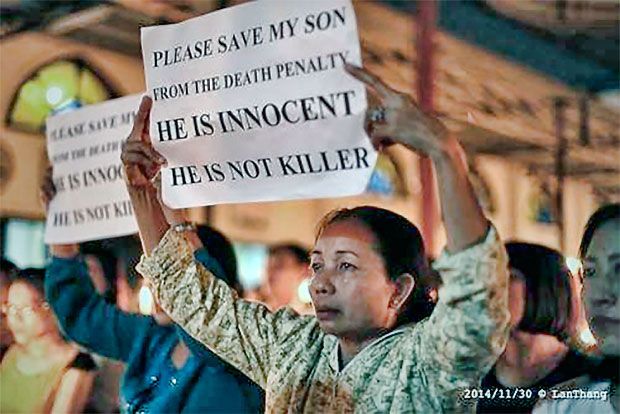
Death Penalty
6.5 Accede to the Second Optional Protocol to the International Covenant on Civil and Political Rights aimed at abolishing the death penalty (El Salvador); Ratify the Second Optional Protocol to the International Covenant on Civil and Political Rights aiming at the Abolition of the Death Penalty (Montenegro); Ratify, without reservations, the Second Optional Protocol to the International Covenant on Civil and Political Rights, aiming at the abolition of the death penalty (Slovenia); Ratify the Second Optional Protocol to the International Covenant on Civil and Political Rights aiming at the abolition of the death penalty (Croatia)
6.140 Initiate a moratorium on the imposing of capital punishment and especially for non-violent crimes (Finland); Consider implementing a full moratorium on the death penalty (Georgia); Impose a moratorium on executions and abolish the death penalty (Iceland); Establish a de facto moratorium on the death penalty with a view to its abolition (Portugal); Establish a moratorium on the application of the death penalty as a step towards its definitive abolition and modify the Penal Code to reduce the number of crimes for which the capital punishment can be imposed (Spain); Impose a moratorium on executions with the goal of abolishing the death penalty (Albania); Establish a moratorium on the death penalty as a step towards complete abolition of this practice (Australia); Immediately adopt a moratorium on the death penalty with a view to ultimately abolishing it (Austria); Take the necessary measures to establish a moratorium on executions of death row prisoners as well as to repeal the death penalty from their national legislation (Argentina)
6.141 Abolish the death penalty and, without delay, reduce the number of offences punishable by the death penalty (France); Abolish definitely the death penalty and ratify the Second Optional Protocol to the International Covenant on Civil and Political Rights aiming at the Abolition of the Death Penalty (Luxembourg); Continue reform towards abolition of the death penalty, including by continuing to reduce the list of crimes punishable by the death penalty under the Penal Code 2015, in particular non-violent crimes, and by providing greater transparency about the numbers, methods and associated crimes relating to its use (New Zealand); Abolish the death penalty for all crimes, and consider ratifying the Second Optional Protocol to the International Covenant on Civil and Political Rights, aimed at abolishing the death penalty (Uruguay)
6.142 Further reduce the list of offences punishable by death, eliminate the death penalty for “activities against the people’s government”, “espionage”, “embezzlement”, and “taking bribes” as well as for serious drug offences (Germany); Continue to reduce the number of crimes subject to the death penalty and consider introducing a de facto moratorium on its application (Mexico); Continue to reduce the scope of crimes subject to the death penalty only for “most serious crimes” and consider introducing a moratorium (Norway); Continue the process of reduction of offences subject to death penalty, until the abolition of the capital punishment and to publish statistics on the use of death penalty in Vietnam (Romania); Further reduce the offences punishable by death penalty and provide official figures regarding death sentences and executions; consider to introduce a moratorium of death penalty (Italy)
6.143 Reduce further the list of crimes punishable by the death penalty, in particular economic crimes and drug-related offences, and envisage a complete moratorium on the application of the death penalty (Switzerland)
6.144 Assist the process of national discussion on death penalty with a view of its eventual abolishment (Ukraine)
6.146 Restrict the use of the death penalty to crimes that meet the threshold of “most serious crimes” under international law (Belgium)
6.290 Cease applying the death penalty for non-violent crimes, including drug offences (Australia)
6.291 Introduce a national moratorium on the death penalty, aiming at complete abolition. Until then, reduce the number of crimes subject to the death penalty, ensuring that it does not apply to offences other than the “most serious” crimes, in accordance with International Covenant on Civil and Political Rights (Sweden)
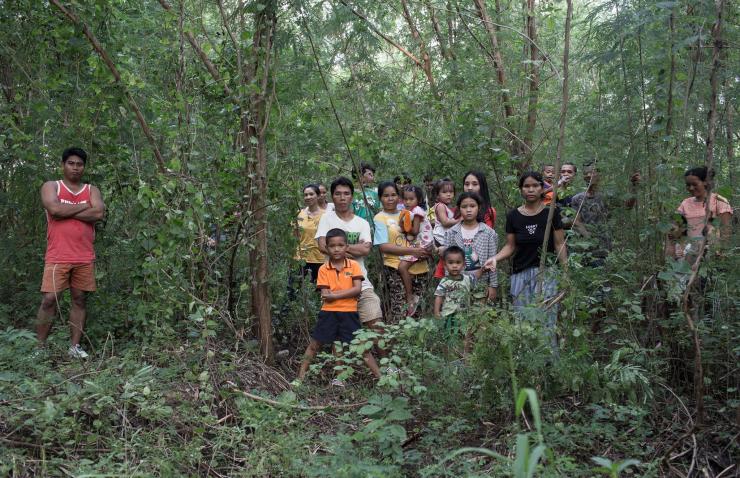
Discrimination, Inequalities and Vulnerable Groups
6.90 Continue efforts in eliminating inequalities in access to public services (China)
6.92 Increase efforts in addressing discrimination, in line with its international obligations, and towards improving its legal framework against gender-based violence (Greece)
6.93 Enact legislation to ensure access to gender affirmation treatment and legal gender recognition (Iceland)
6.96 Continue to conduct studies with a view to amend existing or introduce new legal instruments to eliminate all forms of discrimination against people living with HIV (Malaysia)
6.97 Take further steps to ensure the protection of all vulnerable groups in society including LGBTI persons (Malta)
6.98 Legalize same-sex marriage before the next UPR (Netherlands)
6.99 Explicitly provide “sexual orientation” and “gender identity” as a forbidden ground of discrimination in the revised Labour Code and other relevant laws (Norway)
6.107 Take further measures to reduce inequalities and enhance access to services especially to vulnerable persons, including women, children and disabled (Bhutan)
6.108 Review the Labour Code and the law on gender equality to include a detailed definition of sexual harassment (Canada)
6.109 Develop legislation against discrimination on the grounds of sexual orientation and gender identity (Chile)
6.153 Set up a robust legislative framework prohibiting and sanctioning all discriminatory practices, enabling victims access justice (Madagascar)
6.170 Take measures to combat religious motivated violence and harassment and ethnic discrimination and inequality (Brazil)
6.217 Revise the Penal Code and the Criminal Procedure Code and criminalise all forms of violence against women, raise public awareness on gender equality and combating discrimination against women and girls, enhance efforts and measures to prevent and combat human trafficking, especially that of women and children (Hungary)
6.229 Adopt marriage equality legislation, extending full marriage rights to same-sex couples (Iceland)
6.230 Review the Law on Marriage and Family with a view to setting the same minimum age for marriage for women and men (Zambia)
6.231 Review the law on marriage and the family to guarantee the equality to same sex couples (Canada)
6.259 Step up the efforts for the participation of woman in political and public life and their representation in the decision-making bodies (Ethiopia)
6.260 Prohibit all forms of violence against women and strengthen women’s access to justice (Iceland)
6.261 Continue to strengthen measures to prevent abuse and violence against women (Japan)
6.262 Adopt a national plan of action to prevent all forms of violence against women and assign sufficient resources for its implementation (Spain)
6.263 Further invest in women’s economic empowerment and promote decent work for women in partnership with relevant international organizations (Thailand)
6.268 Implement the policy on promoting gender equality and bridging the gender gap, which focusing on enhancing the role and participation of women in the political, economic and social spheres (Cambodia)
6.284 Develop, in line with the Convention on the Rights of Persons with Disabilities, community-based and people-centred mental health services that do not lead to institutionalization and over medicalization and that respect the free and informed consent of persons with mental health conditions and psychosocial disabilities while combatting stigma and violence against them (Portugal)
6.288 Pursue efforts to adopt national legislation to ensure further respect of the rights of migrants, to prepare the ground for the International Convention on the Protection of the Rights of all Migrant Workers and Members of Their Families (Egypt)
6.289 Continue its efforts on prevention and reduction of statelessness through among others reacquisition of Vietnamese nationality and prevent children statelessness (Kenya)
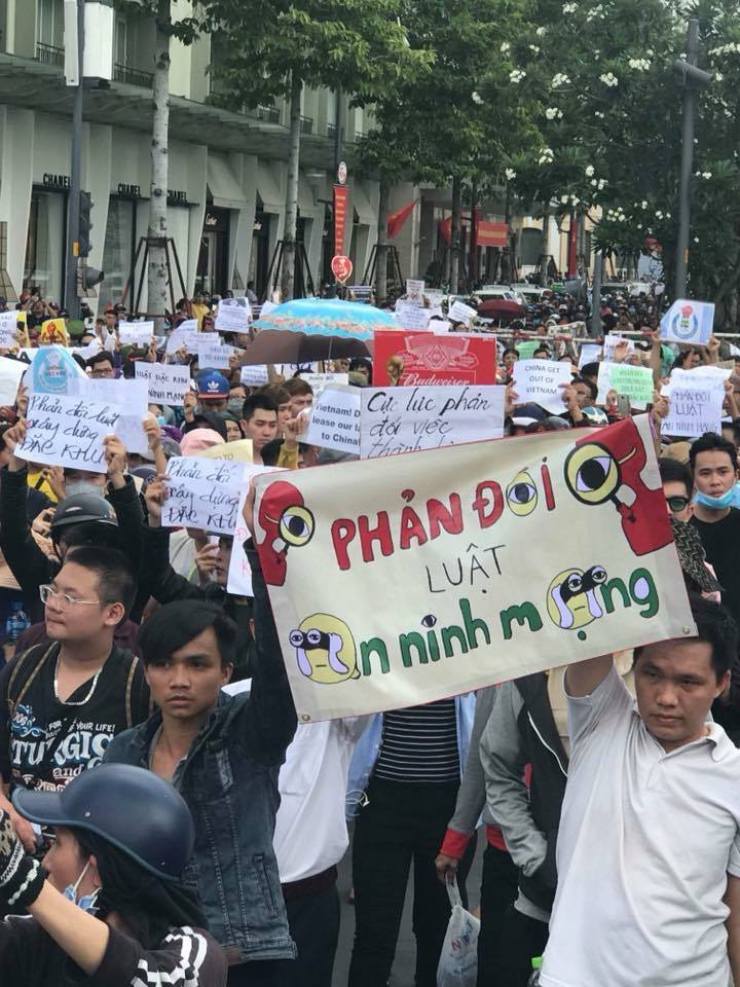
Fundamental Freedoms
6.42 Enhance efforts to comply with the recommendations accepted during the second Universal Periodic Review cycle on guaranteeing the right to freedom of expression (Chile)
6.168 Take steps to guarantee freedom of opinion and freedom of expression, including on the internet, in the context of the adoption of the law on cybersecurity (France)
6.179 Protect civil and political rights, especially freedom of expression, peaceful assembly and association (Luxembourg)
6.184 Restrictions on freedom of expression, and particularly online freedom, be lifted in line with Vietnam’s obligations under international law (Ireland)
6.189 Strengthen efforts to ensure the freedom of expression, including in the digital environment (Peru)
6.195 Ensure freedom of expression, including online, and promote actions to ensure freedom and independence of the media (Japan)
6.196 Continue the measures aimed at lifting all restrictions on the right to freedom of opinion and expression and to allow bloggers, journalists and other internet users to promote and protect human rights (Romania)
6.199 Enhance efforts to guarantee freedom of religion or belief, also by further reducing administrative obstacles to peaceful religious activities and by combating violence and discrimination on religious grounds (Italy)
6.200 Adopt legislative changes to guarantee the protection and free exercise of freedom of expression, association and peaceful assembly (Spain)
6.206 Take the necessary measures to eliminate administrative barriers in order to guarantee exercise of freedom of worship (Angola)
6.207 Enact laws to provide for freedom of assembly and peaceful demonstration in line with the International Covenant on Civil and Political Rights (Australia)
6.209 Take further steps to ensure an independent and pluralistic media landscape, including by reducing political influence on media outlets (Austria)
6.210 Safeguard freedom of religion and believe for all in Vietnam (Kenya)
6.213 Increase and ensure Vietnamese citizens’ access to information, including by increasing radio and television coverage in all parts of the country (Cyprus)
6.236 Allow for the establishment of independent trade unions and to recognize their right to organise (Canada)
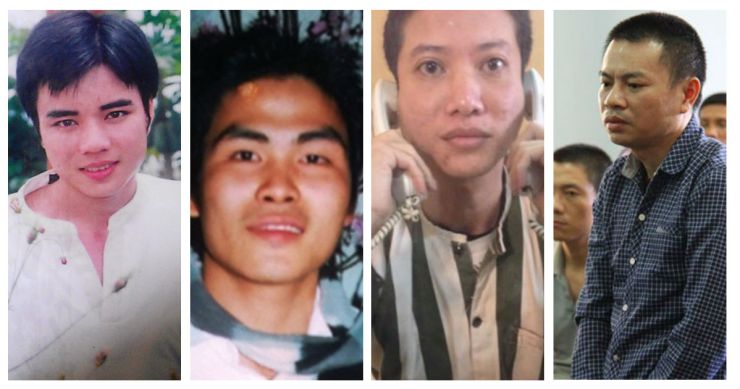
Judicial System, Fair Trials and Due Process
6.147 Ensure that evidence obtained through torture is inadmissible in trial in keeping with Viet Nam’s obligations under the Convention against Torture (New Zealand)
6.148 Take steps to prohibit harassment and torture during the investigation process and detention and punish the perpetrators (Togo)
6.150 Abolish immediately at all levels the exercise of outdoor trials to ensure the right to the presumption of innocence, effective legal representation and fair trials (Denmark)
6.152 Revise the judicial system to provide a safer environment to victims in case of all crimes (Hungary)
6.156 Pursue judicial and institutional reforms to bring them into line with international human rights standards (Senegal)
6.158 Ensure that fair trial guarantees and due process rights, as provided in international law and standards, are respected and upheld in all cases (Slovakia)
6.164 Amend the Criminal Procedural Code so that persons are represented by a lawyer immediately following their arrest and to guarantee their right to a fair trial (Canada)
 About the Author About the Author
Shiwei Ye is an Asia-based independent human rights analyst, strategy advisor, trainer, and civil society consultant. |
Vietnam's independent news and analyses, right in your inbox.